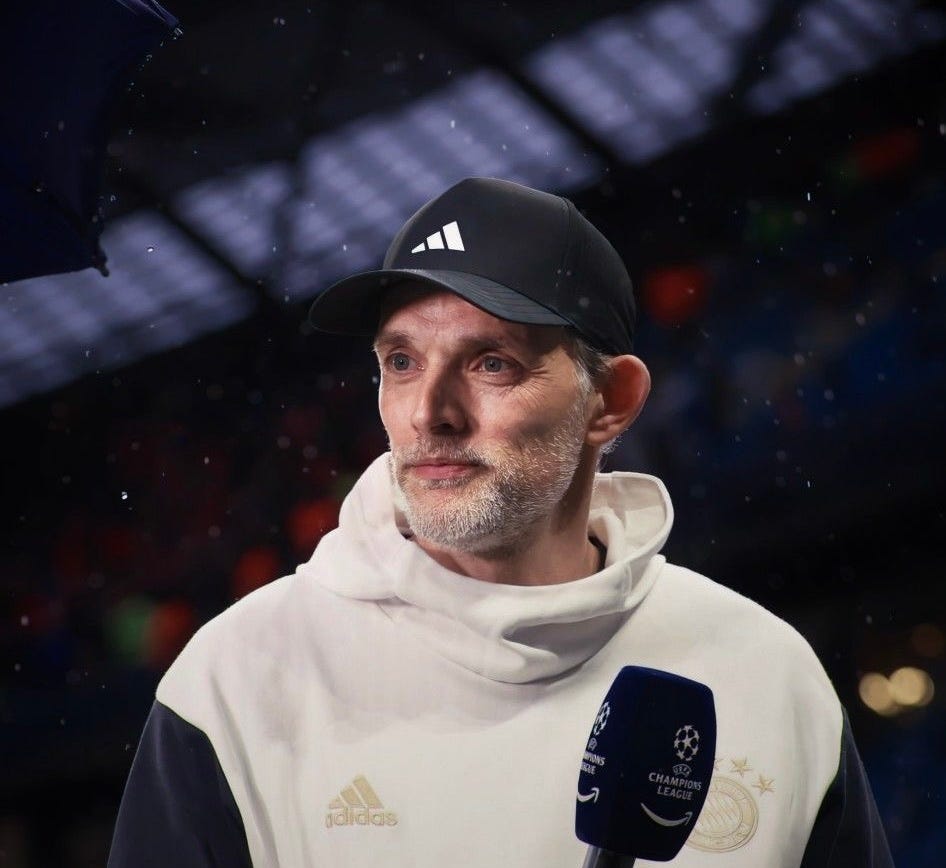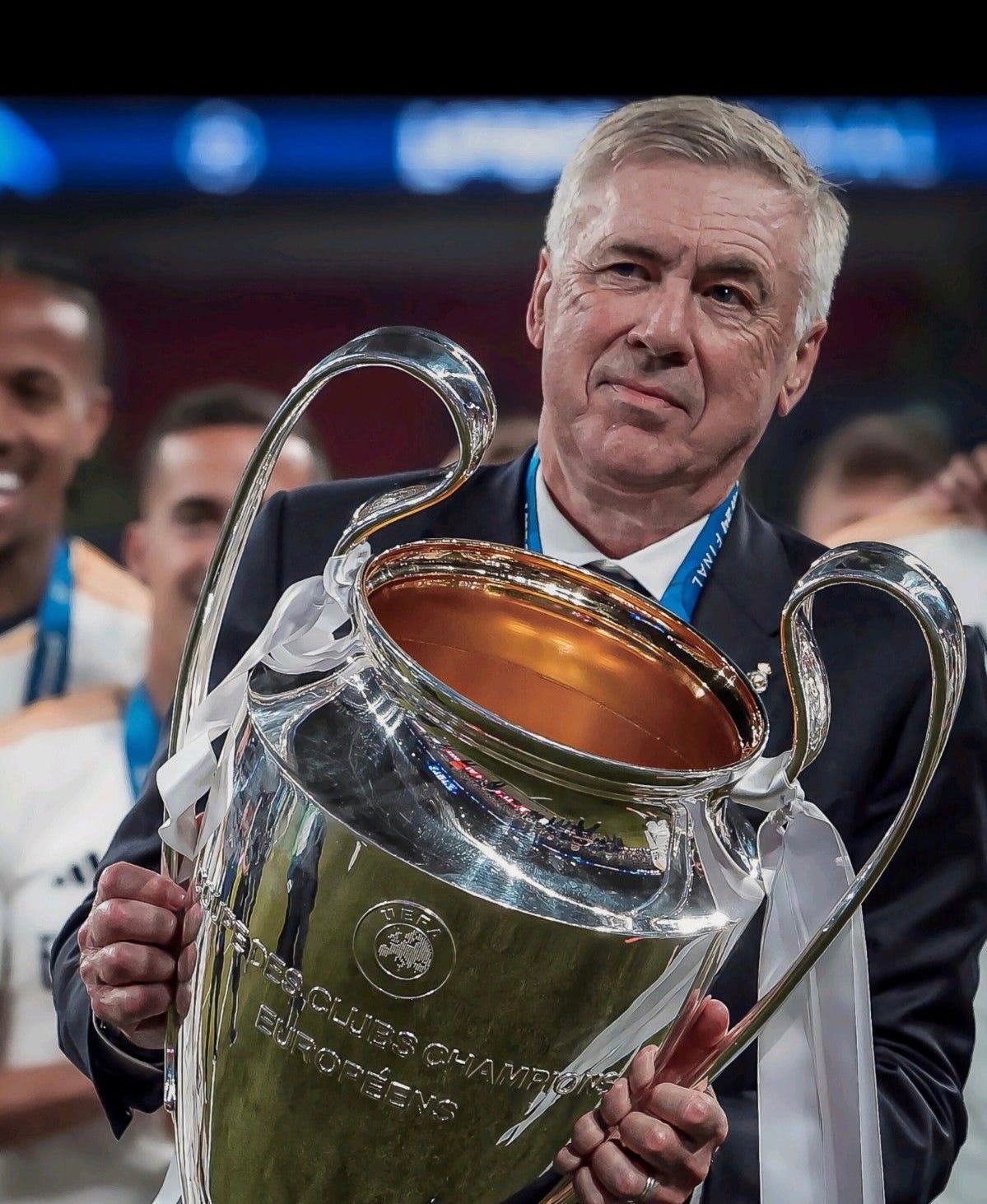International Management à la Mode
Why International Football is Back in Style Among Elite Coaches
Thomas Tuchel settling into the manager’s office at St George’s Park. Mauricio Pochettino steering the USMNT towards a World Cup on American soil. Luciano Spalletti resurrecting the Azzuri’s pride. These aren’t retirement gigs - they’re the posts of top-tier managers still hungry for success.
In late 2024, international football management is looking more attractive than it has for decades, with some of the sport’s most respected tacticians now heading up national teams. So, why are managers who once lived and breathed the relentless, day-to-day demands and intensity of club football turning their attention to the international stage?
For much of the 21st century, it appeared the allure of managing a national side had faded for elite managers. The lack of regular contact with players, the long waits between rounds of competitive fixtures, and the slower pace of international football meant that the job often became a semi-retirement option.
The men charged with leading England’s ‘golden generation’, Sven-Göran Eriksson and Fabio Capello, embodied this trend. The Swede and the Italian both had glittering club careers but were considered past their peak when they were appointed by the FA. International management seemed like a step down for them, something to do after the bright lights of peak calcio and the Champions League had dimmed.
But this point in time feels different. Thomas Tuchel’s recent appointment as England boss has captured the imagination. Tuchel, (relatively) fresh from top jobs at Dortmund, PSG, Chelsea and Bayern Munich, is still considered one of the most tactically astute coaches of his generation.
His decision to take on a national team suggests that managing a squad with a vast talent pool might now offer the challenges and opportunities that match the allure of top club jobs.
Meanwhile, in Luciano Spalletti, Italy have a manager who not so long ago guided Napoli to their first scudetto in over three decades. Spalletti has taken over a side that, despite winning Euro 2020 (in 2021), missed out on consecutive World Cups in Russia and Qatar respectively.
Signore Spalletti is hardly a coach past his prime, despite his public desire for a slower pace of life.
Even Mauricio Pochettino, who has long been linked to elite clubs around Europe, has found his place in international football. After managing Tottenham, PSG and Chelsea, he’s now entrusted with developing the United States squad ahead of the 2026 World Cup.
For Poch, the appeal appears to be similar to the one that attracted him to Stamford Bridge in 2023. The US national team offers something of a blank slate; a young, talented squad to mould in his vision. The chance to make history, at a home tournament, in a country where football is growing exponentially only sweetened the deal.
The growing interest from top managers isn’t just about those who have already made the switch. Other big names have dallied with international jobs. Carlo Ancelotti, one of the most decorated managers in football history, was reported to have been in negotiations to become Brazil manager, before extending his stay at the Bernabéu.
For the CBF, the allure of appointing Ancelotti lies in his wealth of experience and success in the Champions League, the world’s premier club competition. For Ancelotti, Brazil could be the final frontier - leading the world’s most successful nation in search of a sixth star for the famous yellow shirt.
Then there’s Pep Guardiola, who has continually flirted with the idea of international management in press conferences and interviews during his time at Manchester City. Guardiola has often spoken of his desire to manage a national team and hinted that it’s a matter of “when” not “if.”
The Catalan coach has achieved almost everything in club football at a relatively young age, and the prospect of managing a country would allow him to continue his legacy.
Jürgen Klopp is another name that looms large on the international scene. Long tipped as a future Germany manager, Klopp has resisted the interest of the DFB so far, preferring the week-to-week intensity of club football.
Despite taking a job ‘upstairs’ with the Red Bull group, rumours of Klopp and Germany won’t go away for long. Like Guardiola, Klopp might view international football as the next big challenge after successful spells at Dortmund and Liverpool. Although another top level manager in Julian Nagelsmann will be hoping to bring a fifth World Cup home from the USA in 2026.
Last but not least, Zinedine Zidane has been linked to the France job for years, like a phantom hanging over poor Didier Deschamps. Despite the latter’s World Cup triumph in 2018, pressure from French fans and media has steadily grown since, fuelled by frustration at an unadventurous style of play.
Zidane’s time at the helm of Real Madrid, where he lifted three consecutive European Cups, and his cult status playing in the bleu shirt, make him a natural successor. Could the 2026 World Cup be the stage for Zizou to step into international management?
Several factors explain why international football is again appealing to elite managers. First, the growing quality of national teams has made the job more enticing. The international game doesn’t lag behind in terms of tactical sophistication, the way it did just a decade ago. Elite managers now see national teams as a fresh canvas to apply their systems and philosophies, working with tactically intelligent players.
Another factor is the ever-intensifying club football calendar. Managing a top European club is a relentless, year-round commitment. The physical and mental toll on managers has become immense, with competitions cutting into the shrinking off-season.
Renowned coach Marcelo Bielsa‘s appointment as Uruguay boss seems to reflect a desire for a more manageable schedule. Bielsa has spoken of the toll club management takes on him, and how the international setup offers more breathing room while allowing him to coach at a high level.
There’s also the element of legacy. For managers like Guardiola, Nagelsmann and Tuchel, the international game represents uncharted waters. Winning the World Cup or the Euros holds a different kind of prestige than the Champions League, the Bundesliga or the Premier League. It’s a chance to join greats of the game like Vincente del Bosque, César Luis Menotti and Mario Zagallo - managers remembered not just for league titles but for leading nations to glory.





